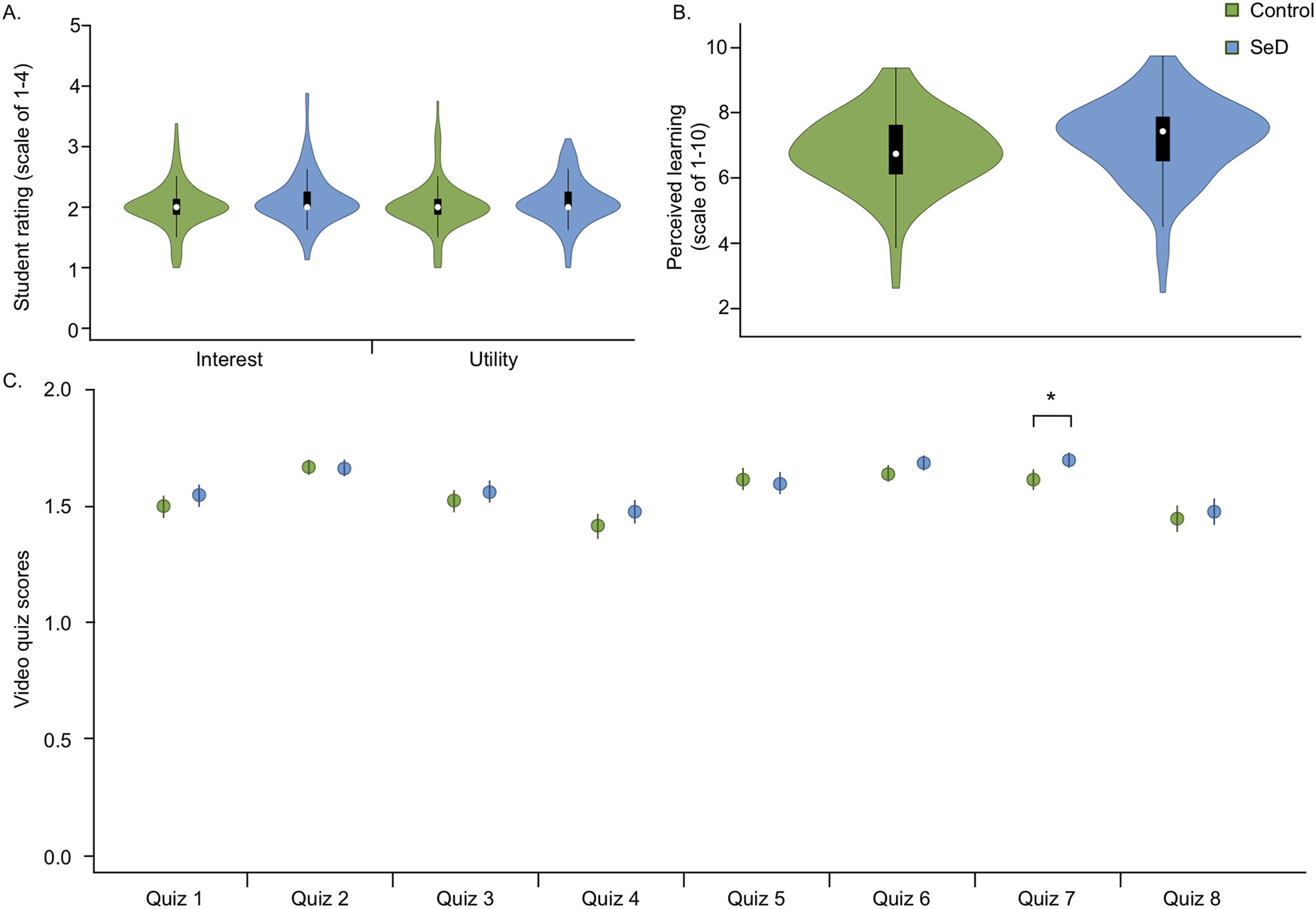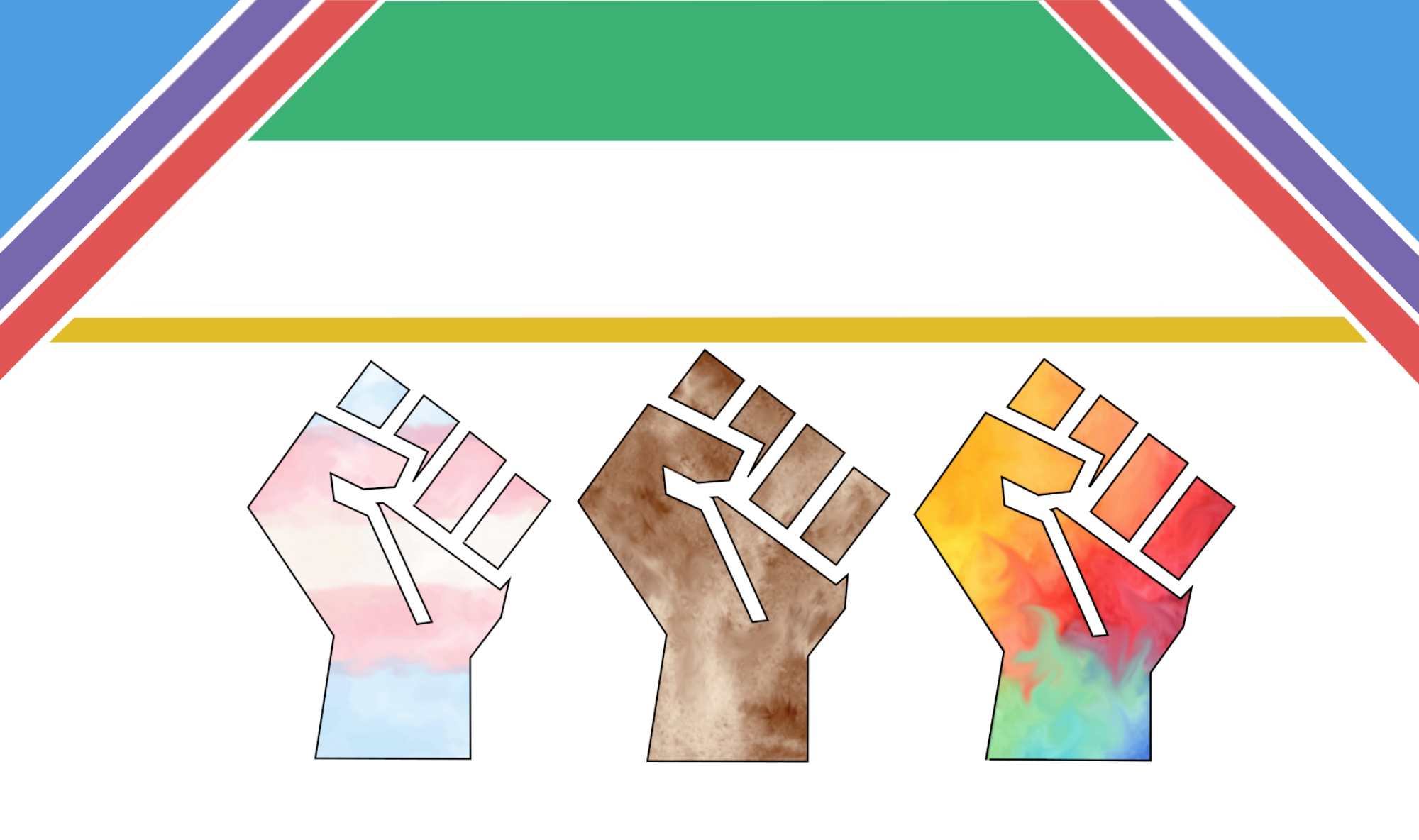| Past Work |
In this section, you can find past publications that our lab has contributed to. Any highlighted names within the citations indicate either a current or past member of your research group!
Factors influencing retention of transgender and gender nonconforming students in undergraduate STEM majors.
Maloy J, Kwapisz M, Hughes B. 2022.

TGNC Retention Figure 1 fr CBE R&R
Using national, longitudinal data from the Higher Education Research Institute at the University of California, Los Angeles, we analyzed the experiences of 20,910 students who indicated an initial intent to major in a STEM field and found that TGNC students (n = 117) continue in STEM majors at a rate ∼10% lower than their cisgender peers. This gap persists despite TGNC students’ high levels of academic ability and academic self-confidence. Through multilevel regression modeling, we found this difference is not explained by experiences that have predicted the likelihood of cisgender students leaving STEM. The only significant predictor of STEM attrition for TGNC students in our model was whether they sought personal counseling; TGNC students who more frequently sought personal counseling were 21% less likely to remain in STEM majors. Overall, TGNC students leave STEM at rates similar to or higher than other minoritized groups, building the case for a multifaced, intersectional approach to addressing diversity and equity in the preparation of the future STEM workforce.
Fourteen recommendations to create a more inclusive environment for LGBTQ+ individuals in academic biology.
Katelyn M. Cooper, Anna Jo J. Auerbach, Jordan D. Bader, Amy S. Beadles-Bohling, Jacqueline A. Brashears, Erica Cline, Sarah L. Eddy, Deanna B. Elliott, Elijah Farley, Linda Fuselier, Heather M. Heinz, Madison Irving, Tanya Josek, A. Kelly Lane, Stanley M. Lo, Jeffrey Maloy, Michelle Nugent, Erika Offerdahl, Juan Palacios-Moreno, Jorge Ramos, Joshua W. Reid, Rachel A. Sparks, Ashley L. Waring, Mike Wilton, Cara Gormally, Sara E. Brownell. 2020.

Individuals who identify as lesbian, gay, bisexual, transgender, queer, and otherwise nonstraight and/or non-cisgender (LGBTQ+) have often not felt welcome or represented in the biology community. Additionally, biology can present unique challenges for LGBTQ+ students because of the relationship between certain biology topics and their LGBTQ+ identities. Currently, there is no centralized set of guidelines to make biology learning environments more inclusive for LGBTQ+ individuals. Rooted in prior literature and the collective expertise of the authors who identify as members and allies of the LGBTQ+ community, we present a set of actionable recommendations to help biologists, biology educators, and biology education researchers be more inclusive of individuals with LGBTQ+ identities. These recommendations are intended to increase awareness of LGBTQ+ identities and spark conversations about transforming biology learning spaces and the broader academic biology community to become more inclusive of LGBTQ+ individuals.
M-LoCUS: A scalable intervention enhances growth mindset and internal locus of control in undergraduate students in STEM.
Nallapothula D, Berdan Lozano J, Han S, Herrera C, Whang Sayson H, Levis-Fitzgerald M, Maloy J. 2020.
Journal of Microbiology & Biology Education

Student self-beliefs regarding intelligence and ability have been shown to correspond to achievement and persistence in an academic domain. Specifically, previous research has suggested that a growth mindset—or the belief that intelligence is malleable and can increase with effort—is associated with student success. Locus of control is a related but distinct self-belief regarding personal agency over various academic and nonacademic outcomes and has also been associated with study skills and academic persistence. However, academic interventions targeting student mindsets and loci of control have remained relatively underexplored, specifically in the context of undergraduate STEM education. Here, we describe the development and assessment of an intervention encouraging students to adopt a growth mindset and internal locus of control. This five-part intervention is administered entirely online and is therefore independent of individual instructor variability. We administered the intervention in five introductory biology courses and show that the intervention was successful in impacting student mindsets and loci of control across various demographics.
Seductive Details in the Flipped Classroom: The Impact of Interesting but Educationally Irrelevant Information on Student Learning and Motivation
Maloy J, Fries L, Laski F, Ramirez G. 2019.

In this study, we assessed the impact of providing students with short video clips highlighting the relevance of material they are learning in the genetics classroom to their everyday lives. These interesting but non–learning objective-oriented clips, referred to as “seductive details,” have been studied extensively in laboratory contexts. In laboratory studies, seductive details have been shown to actually decrease learning, leading some to recommend that any information not directly pertaining to academic learning outcomes be removed from education materials. We aimed to uncover the effects of seductive details in an actual college course, in a manner divorced from the confounding variation introduced by instructor-level differences in personality and lecture styles. Our results show that, in a flipped-classroom environment, seductive details do not harm students’ content attainment, interest, or perceived learning, but they are memorable. Students with high background knowledge of genetics reported greater learning after watching videos containing seductive details than students who watched equivalent videos without seductive details, but there was no difference in quiz scores between the groups. These results contradict some of the major effects observed throughout decades of studies conducted in artificial psychology laboratory environments and highlight possible affective benefits of instructors using seductive details.
